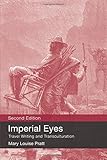- 以下の文献からPaul Whiteが書いた、’The Man of Science’を読む。

A Companion to the History of Science (Wiley Blackwell Companions to World History)
- 作者: Bernard Lightman
- 出版社/メーカー: Wiley-Blackwell
- 発売日: 2016/04/04
- メディア: ハードカバー
- この商品を含むブログを見る
この本、実験室、サイエンスイラストレーターや科学器具、科学模型など科学史上のさまざまなトピックを扱うもので、トピックのチョイスもおもしろく、また学部生向けにかかれてるからか、英語も平明で重要先行研究にも触れてくれるので大変便利である。
Paul White (2016) 'The Man of Science' in Bernard Lightman (ed) A COMPANION TO THE HISTORY OF SCIENCE(Wiley-Blackwell)を読む。
- 19世紀初頭にすでにscientistという表現は使用されるのだが、naturalistとかnatural philosopherから白衣を着てラボで働くscientistへ、と一直線にはならず、19世紀に実際に利用されたのはman of scienceという表現
- naturalistみたいなのと同時にzoologistとかbotanistという個別分野の故障は存在していたが、physicistとかbiologistはまだなかった。
- scientistという言葉を使用したのはWhewell。だがこれは一種のjokeで、ネガティブな意味が含まれていた
- Whewell’s remarks on coining the word scientist suggest an overriding concern with fragmentation: “the mathematician turns away from the chemist; the chemist turns away from the naturalist….” Yet he addressed the problem with a joke, introducing “scientist” in a derogatory fashion as a word akin to atheist, sciolist (one who merely pretends to knowledge), and even tobacconist (Whewell 1834, 59; a more sober plea appears in Whewell 1840, 1: cxiii). [p. 154]
- 引用されているのは以下の文献
- Whewell, William. 1834. “Review of On the Connexion of the Physical Sciences.” Quarterly Review, 51: 54–68.
- Whewell, William. 1840. The Philosophy of the Inductive Sciences, 2 volumes. London: John Parker.
- Whewellは科学がover-specialisationすることに懸念を持っていたが、同時に科学のhubirsをより強く問題視していた。general lawsやcausesを明らかにできるのはphilosophyで、テクニカルなことを扱うscienceではないと考えていた模様。
- だから、scientistというのは特殊な事物に詳しい、philosopherの下働きのようなもの?
- このparticularを扱う下っ端、それを統括するtheoristみたいな図式、victorian Britainにわりと多い印象。
- 多くのひとが偉大なtheoristと単なるfact---gatherersを区別することには同意した。だが、こうした区分はscienceの内部にあるべきで、scientistをfact-gatherersとみなすWhewellに反対した。
- Chalres Babbageはscienceをfactoryやarmyとして組織することを望んだ。そこでは階級的上下区分が導入された
- 1831年のBAAS設立もこの流れにある。無数のobserversと、それを統括する(ロンドン在住の)エリート。
- 実情はこんなにわかりやすい分割ではなかったが、この区分はしばしば用いられた。
- man of scienceという表現はこうした流れの中で、テクニカルな知識と、広い関心を兼ね備えた存在として使用された模様。
- man of scienceにとって重要だったことはそれが職業としては成立していなかったこと。(大陸と異なり?)そこにはキャリアパスもなかった。イギリスにも教授職はあったが、給料はしばしば不十分であった。translatingやscientific conslutingなどscienceに関係することでお金を稼ぐことは不可能ではなかったが、それは一般に低いものとみなされていた。科学を行うことはcallingであって、金銭的目的のためにするものではなかった。こうした考えはman of scienceのイギリスにおける待遇改善を求めたHuxleyにおいてさえそうであった。
- engineeringは国家のprogressとの関係で重要だとみなされたが、それがscienceとどういう関係にあるのかはもうすこし微妙であった。
- utilityとの関連は弱かった。
- man of scienceはpoliticsやprivate interestsの外側にある存在であり社会全体に奉仕する存在であった。このイメージはRoyal Institutionで特に強められた。
- TyndallによるMichael Faradayの伝記などはこうしたheroicな図式を確認するもの。humbleな生まれだが、精神的には高貴なgeniusというロマンチックな語り。
- geniusについてはSimon Schafferの以下の論文があるらしい。
- Schaffer, Simon. 1990. “Genius in romantic natural philosophy.” In Romanticism and the Sciences, edited by Andrew Cunningham and Nicolas Jardine, 82–98. Cambridge: Cambridge University Press.
- genius概念は当時hardworking/industriousnessと結びついており、truthのために働くself-made manというものだったらしい。
- 当時の多くのmen of scienceは富裕な階層出身であったが(Darwinなど)、しばしば自らの苦労を好んで語った。Galtonによるgenius調査においてもこの種のエピソードはよく見られる。
- この時期の新しい科学的制度と政治的制度の変革はしばしば関連付けられて論じられる。man of scienceたちを地主などの旧型支配階級に対するmiddle classと歩を合わせるものだとされたり(Roy MacLeod,1983. “Whigs and savants: Reflections on the reform movement in the Royal Society, 1830–48.”)、科学者と旧来の知的権威としての教会との対立が語られる(Frank Turner, 1993, Contesting Cultural Authority) 。だが、こうした議論には問題がある(このあたり、いまいちWhiteの立場よくわからない。)。
- Joseph Dalton Hookerがこの点を読奥描き出す。Hookerはreformerで、サラリー付きの仕事を科学組織にえた(Royal Botanic Gardens director職?)最初期の科学者の一人。だが、かれは自らをgentlmanとして、landed aristocratとして、そしてAnglican Churchへの忠誠を示したがった。かれは科学の貴族的性格を保持しようとした?
- 近年の研究では科学と宗教のconlifctという図式は疑問に付されている。
- Brooke, John. 1991. Science and Religion: Some Historical Perspectives. Cambridge: Cambridge University Press.
- Fyfe, Aileen. 2004. Science and Salvation: Evangelical Popular Science Publishing in Victorian Britain. Chicago: University of Chicago Press.
- だが、Shapinのように、19世紀を通して科学の世俗化が起こったという議論は根強い。
- Shapin, Steven. 2008. The Scientific Life: A Moral History of a Late Modern Vocation. Chicago: University of Chicago Press.
- prestigiousな科学協会における牧師の参加者数は減ったのは事実だが、協会関係者のコメンテータとしての権威は依然として残った。
- religionに対して敬意を示すことはまだ社会的に重要な行為であった。
- 対立の重要な場は教育であった。国家の教育へのコントロールは増大し、よりnon-sectarianになったが、世俗化はしなかった。
- 科学は宗教を圧倒しなかった。そこではある種のすみわけが起こった。
- man of scienceはChristian cultureの担い手になったという論文は以下。
- White, Paul. 2005. “Ministers of Culture: Arnold, Huxley, and the Liberal Anglican reform of learning.” History of Science, 43: 115–38.
- man of scienceはRoyal Societyのメンバーのようなエリート科学者をさすこともあれば、もっと多種多様な人々をまとめ上げる用語としても使われた。
- 科学全般をdefendするときのための便利な用語であり、団体行動と連帯を可能にしてくれるidentiyだった。
- 同時に、それは(Galtonの調査に見られたように)exclusivelyにも使われた
- [時にinclusiveに、時にexclusiveにt利用可能なman of scienceという伸縮自在な概念は、おそらく使い勝手が良かったのだろう。]
- 19世紀に科学的活動に携わったものには女性がいたが、man of scienceは明確に科学を男性ものとする。sensitiveでrefinedであるかもしれないがrigorousではないという風に想定された女性は科学に本質的に向いていないものとされる、科学のmasculineな性格。女性の科学への没頭は女性が本来果たすべき役割を放棄しているものとして批判される。
- Russett, Cynthia. 1989. Sexual Science: The Victorian Construction of Womanhood. Cambridge: Cambridge University Press.
- Richards, Evelleen. 1997. “Redrawing the boundaries: Darwinian science and Victorian women intellectuals.” In Victorian Science in Context, edited by Bernard Lightman, 119–42. Chicago: University of Chicago Press, 1997.
- Shteir, Ann. 2006. Cultivating Women, Cultivating Science: Flora’s Daughters and Botany in England, 1760–1860. Baltimore: Johns Hopkins University Press.
- Gianquitto, Tina. 2007. “Good Observers of Nature”: American Women and the Scientific Study of the Natural World, 1820–1885. Athens, GA: University of Georgia Press.
- 女性の科学的実践の参加とそこからの排除。女性はしばしば科学的実践を行ったが、大学には行けず、prestigiousな科学協会では論文を発表することができない、または発表するときは男性による代読といった形式がとられた。女性が科学について積極的に議論できるのはLitrary and Philosohical Societiesのような、よりpoliteな印象のある場所であった。これに対して文通は女性にも開かれていた。
- 植民地での科学活動。フンボルトのような英雄的探検家から、植民地に定住するヨーロッパ人による科学的活動へ。科学が帝国のツールとして植民地を変化させただけでなく、植民地での科学活動を通して、ヨーロッパが変貌するという双方向性。
- ここら辺もう少し掘り下げてほしいところ。関連文献は以下。
- Drayton, Richard. 2000. Nature’s Government: Science, Imperial Britain and the “Improvement” of the World. New Haven, CT: Yale University Press.
- Pratt, Mary Louis. Imperial Eyes: Travel Writing and Transculturation, 2nd edition. London: Routledge, 2008.
- Sivasundaram, Sujit. 2013. Islanded: Britain, Sri Lanka, and the Bounds of an Indian Ocean Colony. Chicago: University of Chicago Press.

Imperial Eyes: Travel Writing and Transculturation
- 作者: Mary Louise Pratt
- 出版社/メーカー: Routledge
- 発売日: 2007/09/27
- メディア: ペーパーバック
- この商品を含むブログ (3件) を見る
- 全体的に関係ありそうな文献は以下。
- Barton, Ruth. 2003. “‘Men of Science’: Language, identity and professionalization in the mid-Victorian scientific community.” History of Science, 41: 73–119.
- Porter, Theodore. 2014. “The fate of scientific naturalism: From public sphere to professional exclusivity.” In Victorian Scientific Naturalism: Community, Identity, Continuity, edited by Bernard Lightman and Gowan Dawson, 265–87. Chicago: University of Chicago Press.
明日は、Schafferのgenius論文を読みたいところ。あるいは、Porter。だが、Porterの話、関係あるのかよくわからないので、やはりSchafferかな。Bartonでもいいのだが、これだいぶ前に読んだような気もする。それか再びemotion系に戻るか。
- Schaffer, Simon. 1990. “Genius in romantic natural philosophy.” In Romanticism and the Sciences, edited by Andrew Cunningham and Nicolas Jardine, 82–98. Cambridge: Cambridge University Press.
- Porter, Theodore. 2014. “The fate of scientific naturalism: From public sphere to professional exclusivity.” In Victorian Scientific Naturalism: Community, Identity, Continuity, edited by Bernard Lightman and Gowan Dawson, 265–87. Chicago: University of Chicago Press.
- Barton, Ruth. 2003. “‘Men of Science’: Language, identity and professionalization in the mid-Victorian scientific community.” History of Science, 41: 73–119.